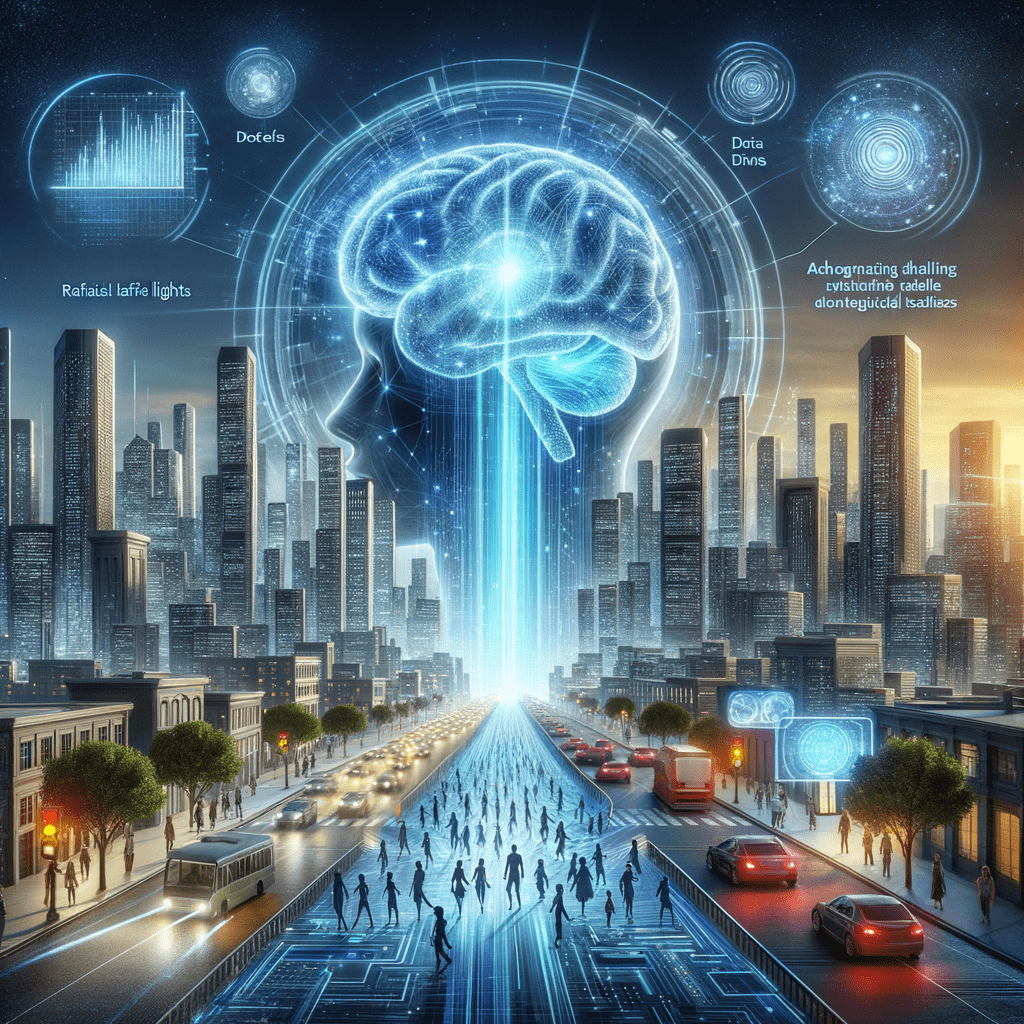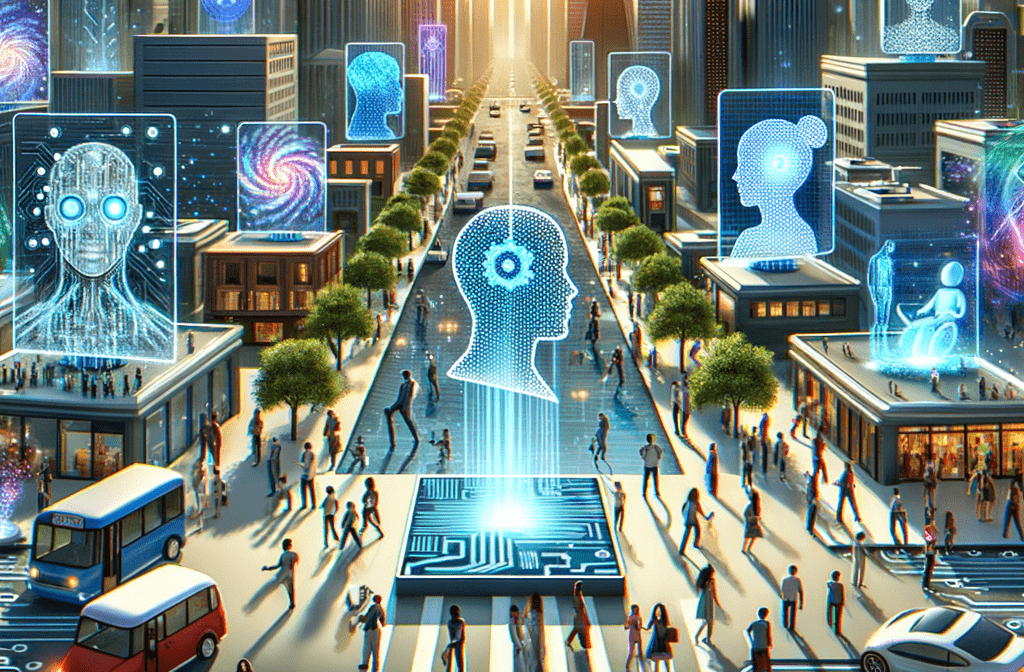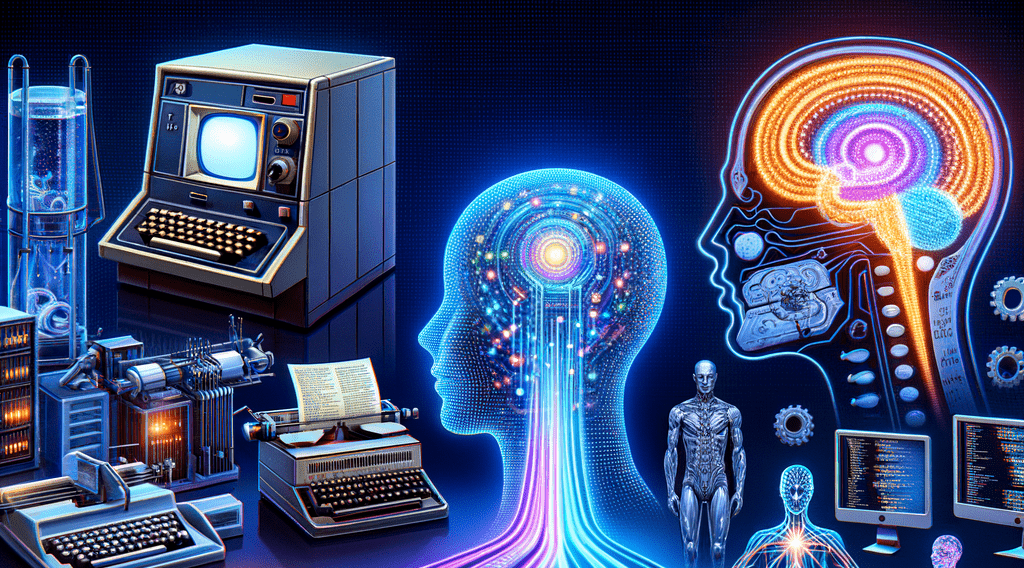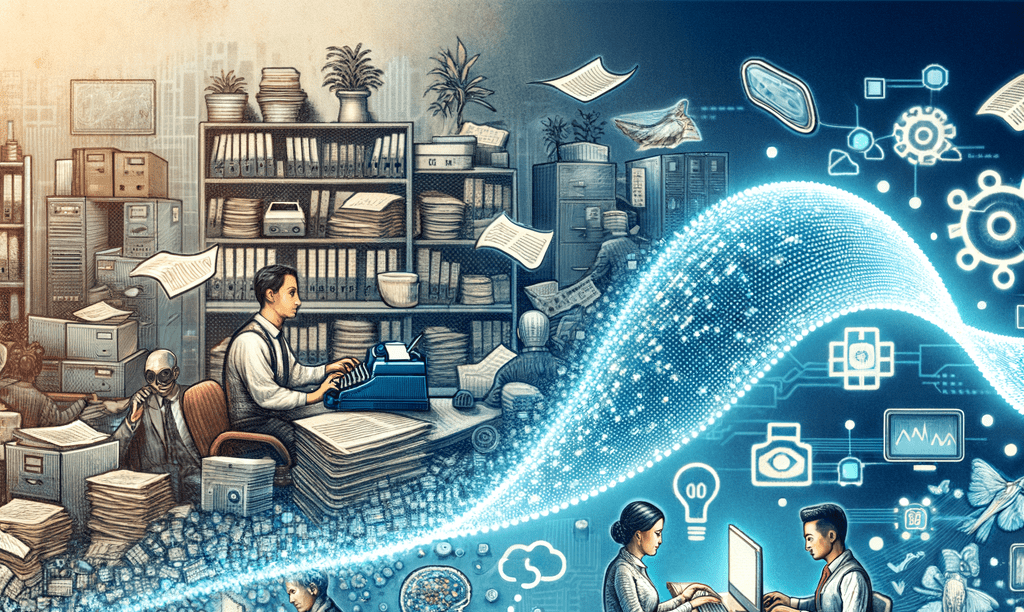-
Introduction
Artificial Intelligence (AI) has become an integral part of modern society, influencing industries, economies, and everyday life. From healthcare and finance to entertainment and transportation, AI is revolutionizing the way we work and interact with technology. With rapid advancements in deep learning, natural language processing, and robotics, AI continues to push boundaries, offering solutions that enhance efficiency and decision-making. This article explores the evolution, applications, challenges, and future prospects of AI in shaping our world.
The Evolution of AI
The journey of AI began in the mid-20th century, with pioneers such as Alan Turing and John McCarthy laying the foundation for intelligent machines. Over the decades, AI has evolved through various stages:
- Rule-Based Systems: Early AI focused on logic-based programming for problem-solving, relying on predefined rules to perform tasks.
- Machine Learning: The development of algorithms that allow computers to learn from data without explicit programming, enabling pattern recognition and predictive analytics.
- Deep Learning: Inspired by neural networks, deep learning enables AI to perform complex tasks such as image and speech recognition, as well as autonomous decision-making.
- General AI: Researchers are working towards AI systems that possess human-like reasoning and adaptability, capable of handling diverse tasks with minimal human intervention.
Key Applications of AI
AI has found applications in various sectors, improving efficiency, decision-making, and automation. Some major fields where AI is making a significant impact include:
AI in Healthcare
- Medical Diagnosis: AI-powered tools assist doctors in diagnosing diseases with higher accuracy by analyzing medical images, patient history, and genetic data.
- Personalized Medicine: AI tailors treatments based on genetic data and patient history, ensuring more effective therapeutic strategies.
- Robotic Surgery: AI-driven robotic systems enhance precision in surgical procedures, reducing recovery times and complications.
- Drug Discovery: AI accelerates the development of new drugs by analyzing vast datasets, identifying potential compounds, and predicting their effectiveness.
- Predictive Healthcare Analytics: AI models predict disease outbreaks and patient deterioration, enabling proactive healthcare interventions.
AI in Business and Finance
- Fraud Detection: AI detects fraudulent transactions by analyzing patterns, anomalies, and inconsistencies in financial data.
- Algorithmic Trading: AI systems execute trades at optimal times to maximize profits based on real-time market analysis.
- Customer Service: AI chatbots and virtual assistants provide instant customer support, improving user experience and reducing operational costs.
- Risk Assessment: AI evaluates creditworthiness and investment risks more accurately, enabling better decision-making for banks and investors.
- Supply Chain Optimization: AI enhances logistics, inventory management, and demand forecasting, reducing costs and increasing efficiency.
AI in Transportation
- Autonomous Vehicles: Self-driving cars rely on AI for navigation, traffic analysis, and decision-making, reducing human errors and enhancing road safety.
- Traffic Management: AI optimizes traffic flow using real-time data, reducing congestion and travel time.
- Predictive Maintenance: AI predicts when vehicles require maintenance, minimizing downtime and improving operational efficiency.
- Smart Public Transport: AI enhances scheduling and route optimization, improving public transit systems.

AI in Entertainment and Media
- Content Recommendation: Streaming platforms use AI to suggest personalized content, improving user experience.
- Deepfake Technology: AI creates realistic media content, which can be used for entertainment as well as misinformation, raising ethical concerns.
- Automated Journalism: AI generates news reports and articles based on data analysis, allowing media companies to produce content more efficiently.
- Gaming AI: AI enhances video game experiences by creating dynamic environments and intelligent NPCs (non-playable characters).
- Music and Art Generation: AI tools create original music compositions and artwork, pushing creative boundaries.
Ethical Challenges of AI
Despite its benefits, AI presents significant ethical and societal challenges:
- Bias and Fairness: AI algorithms can inherit biases from training data, leading to unfair decisions, particularly in hiring, lending, and law enforcement.
- Privacy Concerns: AI-driven surveillance and data collection raise significant privacy issues, leading to potential misuse of personal data.
- Job Displacement: Automation may replace jobs, necessitating workforce adaptation and reskilling programs.
- Security Risks: AI can be exploited for cyberattacks, misinformation campaigns, and identity fraud.
- Autonomous Weaponry: AI-driven military applications raise concerns about ethical warfare and the potential loss of human oversight.
The Future of AI
As AI continues to evolve, researchers and policymakers must ensure responsible development. Key areas of future exploration include:
- Explainable AI: Making AI decision-making processes more transparent and interpretable to users and regulators.
- Human-AI Collaboration: Enhancing AI’s role as an assistant rather than a replacement, ensuring human oversight in critical decision-making.
- AI for Social Good: Leveraging AI to address global challenges such as climate change, disaster response, and healthcare accessibility.
- Regulation and Governance: Establishing legal and ethical frameworks to ensure responsible AI deployment, preventing misuse and addressing concerns related to data privacy and security.
- Quantum AI: Integrating AI with quantum computing to unlock new potentials in computation speed and problem-solving capabilities.
- Neuro-Symbolic AI: Combining deep learning with symbolic reasoning to create AI that understands concepts and logic more effectively.
Artificial Intelligence is transforming modern society in unprecedented ways. From revolutionizing industries to reshaping everyday experiences, AI offers immense potential for progress. However, addressing ethical and practical challenges is crucial to ensuring AI benefits all of humanity. As technology advances, responsible innovation and collaboration between governments, businesses, and researchers will be essential in shaping a future where AI contributes to a more equitable and sustainable world.




